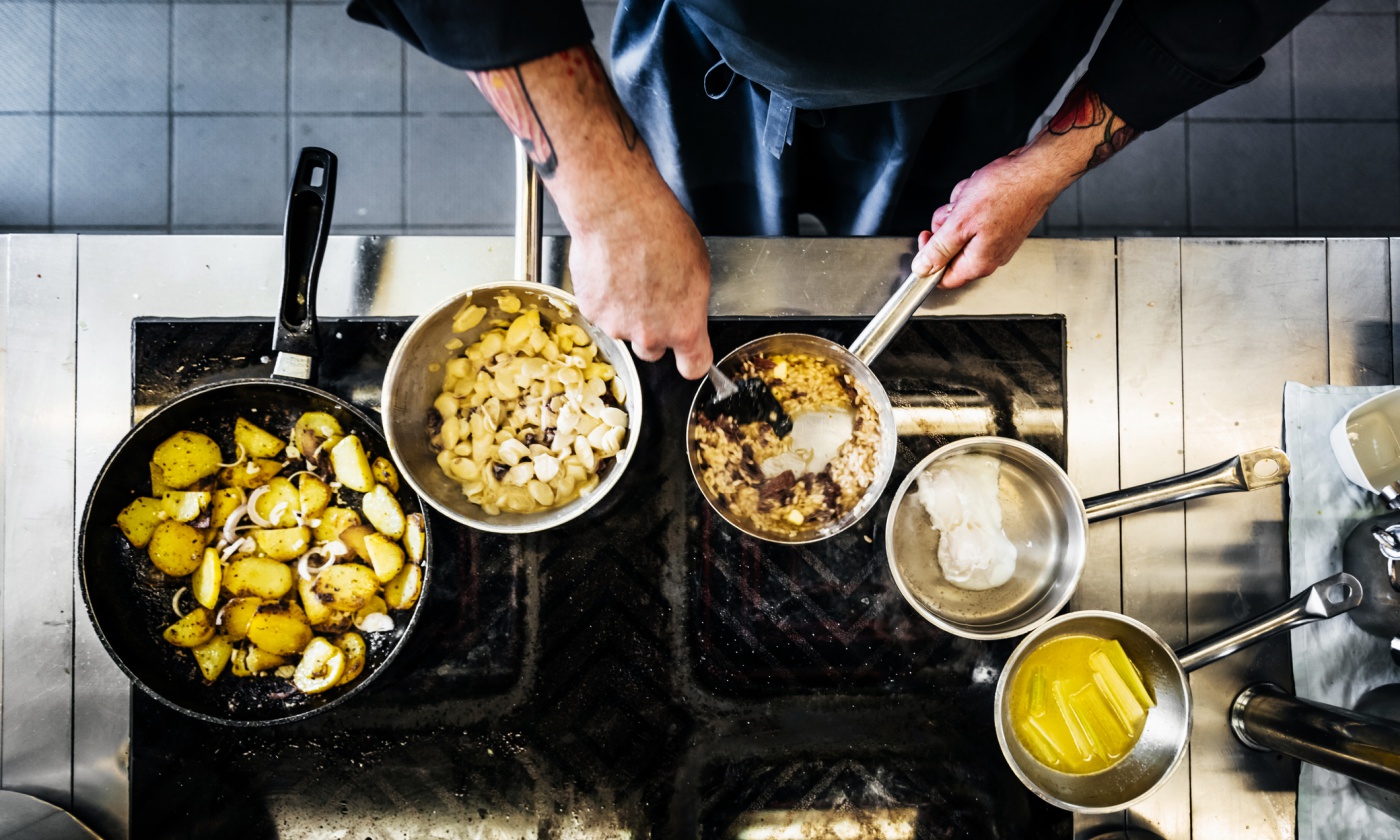Amidst the many considerations of these “stay-at-home” times, it is possible that many folks are considering their relationship to food prep and cooking differently. As access to restaurants is limited, people are opting more often to create meals using their own tools and processes rather than getting their sustenance ready-made from an outside source (evidenced in the societal boom of in-home bread-baking.)
Unless you are a strict raw dieter, a life without cooked food may be difficult to imagine. But did you know that cooking has most likely not always been a fixture in human life? That’s right. Just like many other homo sapien specific processes, it is hypothesized that cooking evolved over time as a biological survival mechanism with social benefits (Farmer, Touchton-Leonard, & Ross, 2017).
While there is no doubt that the chemical composition of what you eat affects all aspects of health, including mental and behavioral, a body of research demonstrates that very actions of cooking, food prep, and eating can be beneficial to psychosocial functioning and have therapeutic effects (Farmer, Touchton-Leonard, & Ross, 2017).
For instance, a 2018 review of literature on the psychological benefits of cooking interventions found studies demonstrating increases in self esteem, positive socialization effects, and positive affect in participants who completed cooking classes in community and inpatient settings (Farmer, Touchton-Leonard, & Ross, 2017).
In addition to going out less frequently, COVID-19 has changed the way people think about sharing food. Cooking for other people carries specific health risks, and it is likely that folks are sharing more meals with housemates or with themselves and fewer in-person meals with others. Although some benefits of cooking are specific to communal environments, the positive effects are fortunately not squelched in isolation. Because cooking involves the creation of a product, it has often been described in the clinical context as part of behavioral activation, a modality that treats symptoms of depression by increasing behaviors that allow the client to encounter environmental reinforcement. Even in a non-clinical setting, cooking and even eating alone can present the opportunities to practice mindfulness, gratitude, and creativity, similarly to other artistic and tactile processes, such as gardening or painting.
In a facilitated context, culinary therapy has gained popularity as a modality consisting of experiential guidance in food-preparation processes, such as grocery shopping, garden-tending, and cooking. Used in treatment of eating disorders, depression, ADHD, autism, and anxiety, it is often combined with other modalities in treatment plans (Culinary 2015). The adaptable facilitations in culinary therapy provide clients opportunities for improved motor function, practice in time management, boredom relief, and practice of sensory awareness (Culinary 2015). In addition to the direct benefits of immersion in food-education and handling, culinary therapy also offers people the space to examine their relationship to food, as it can often serve to mirror other relationships, including the relationship with oneself.
Thinking about getting into the kitchen and experimenting with food? There has never been a better time to try it out!
Click here to create a TPN.Health profile and get access to the trusted digital referral network as well as CEUs and live discussion panels featuring experts in the behavioral health field!
References:
Culinary Therapy What Is It? (2015). Retrieved from https://www.crchealth.com/types-of-therapy/what-is-culinary-therapy/
Farmer, N., Touchton-Leonard, K., & Ross, A. (2017). Psychosocial Benefits of Cooking Interventions: A Systematic Review. Health Education & Behavior, 45(2), 167–180. doi: 10.1177/1090198117736352.
Image Credit: https://www.yesmagazine.org/issue/affordable-housing/2018/06/27/cooking-stirs-the-pot-for-social-change/
